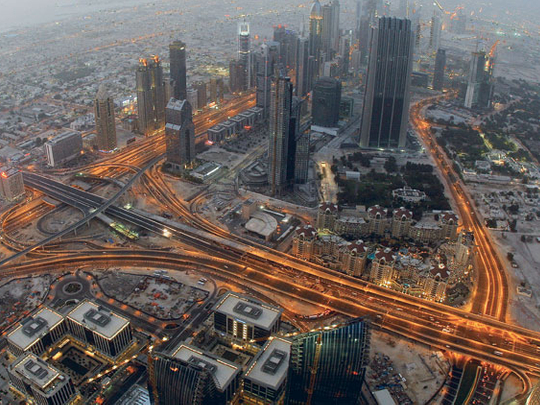
Dubai: Dubai's sovereign risk is still a concern, but the emirate is no worse off than other major economies around the world, industry analysts said.
A report released this month by Euromonitor International, a global market research company, showed that the highest ratios of public debt to gross domestic product (GDP) in 2009 were incurred by Japan (183.8 per cent), Italy (115.8 per cent), Greece (115.1 per cent) and Singapore (113.1 per cent). (see separate story)
There are no official figures of the UAE's public debt, but Euromonitor said it was an estimated $142 billion (Dh522 billion) at the end of 2008, or 56.1 per cent of GDP, which is also much lower than the borrowings by Western Europe (79.5 per cent), France (78.1 per cent) and the United Kingdom (68.1 per cent).
Media Eghbal, countries and consumers editor at Euromonitor International, said the UAE has moved towards reducing public debt to below 45 per cent of GDP. The UAE's real GDP growth fell 0.7 per cent in 2009.
Sovereign risk refers to the danger of a government being unable to meet its financial obligations. It can include risk of default on deals that private companies have entered into with the government, and unexpected changes in government legislation that can affect the business environment.
Nevertheless, Dubai remains attractive to investors in the region. The Gulf Business Confidence Index from HSBC released last month showed that businesses in the UAE and other parts of the Gulf remain positive about revenues and targets.
"Dubai is still one of the best places to do business in the region," Eghbal pointed out. "Abu Dhabi will lead UAE growth benefiting from the rebound in global oil prices. The lack of credit and investment will limit business and employment opportunities," Eghbal added.
Steve Gregory, managing partner at Holborn Assets, said the UAE is somewhat restricted when it comes to generating more income considering the lack of personal tax, though it is in a stronger position to balance the books than many other countries struggling with debt because it has many opportunities to levy direct and indirect taxes.
"For certain, the government will be looking at all opportunities to raise income, as many Dubai residents have become aware, with increases in fuel prices and parking fees, traffic fines and housing taxes," Gregory told Gulf News.
The UAE's public debt-to-GDP ratio is not significant. What is more important, he says, is "the amount of unsecured lending to residents and the struggle so many of them go through to make the necessary repayments."
"These are people at both ends of the income scale. I suspect the number of defaulters is slowing, but many of the cases are a human tragedy resulting in imprisonment and loss of income to the families supported by the defaulter," he pointed out. "The future is rosy for the country, but residents may find life becoming more expensive here."












